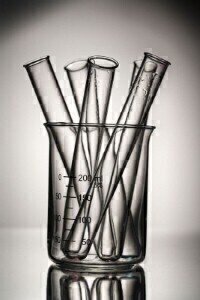News
Enzyme Discoveries that Will Fuel the Future
Mar 25 2011
A Europe-wide project involving a consortium of research institutes, universities and industrial partners is looking at ways to turn waste products from processes such as spruce chips from paper-making, wheat straw from farming and waste bran from milling into bioethanol. A major constituent of these renewable products is lignocellulose, a complex mixture of carbohydrate molecules bound to lignin, the component that forms the basis of wood. The molecular nature of lignocellulose makes it resistant to the actions of microorganisms that could otherwise convert it to simple sugar molecules needed to make biofuels. The EU-funded DISCO project is hoping to find species of microorganisms which have evolved the highly specialised ability to break down the resistant lignocellulose material.
Libraries of microorganisms are a key resource for the research community; for example, the Budapest University of Technology and Economics (BUTE), a partner in the DISCO project, holds a library of over 4000 different microorganisms obtained from a multitude of different sources. From these a number of promising candidates for lignocellulosic enzyme activity have already been indentified and are being further characterised in the labs of other DISCO project partners.
“We’re looking to nature to find answers to the problem of efficiently generating next-generation biofuels from renewable sources, in this case from abundant waste materials from farming and industry,” said Professor Kristiina Kruus, an expert in the enzymology of plant cell wall polymers. “That answer could literally be lying in the soil, in an undiscovered and uncharacterised microorganism.”
The overall aim of the project is to end up with a cocktail of microorganism-derived enzymes that can simultaneously breakdown the complex lignocellose into simple sugars, and enable yeast co-fermentation to produce bioethanol. Initially a pilot scale plant will be developed. However, the starting materials, wheat straw, bran and spruce, are found in abundance throughout Europe as waste materials, so it is hoped that the DISCO project will lead to full scale plants producing biofuels across the continent.
Digital Edition
Lab Asia Dec 2025
December 2025
Chromatography Articles- Cutting-edge sample preparation tools help laboratories to stay ahead of the curveMass Spectrometry & Spectroscopy Articles- Unlocking the complexity of metabolomics: Pushi...
View all digital editions
Events
Jan 21 2026 Tokyo, Japan
Jan 28 2026 Tokyo, Japan
Jan 29 2026 New Delhi, India
Feb 07 2026 Boston, MA, USA
Asia Pharma Expo/Asia Lab Expo
Feb 12 2026 Dhaka, Bangladesh



















